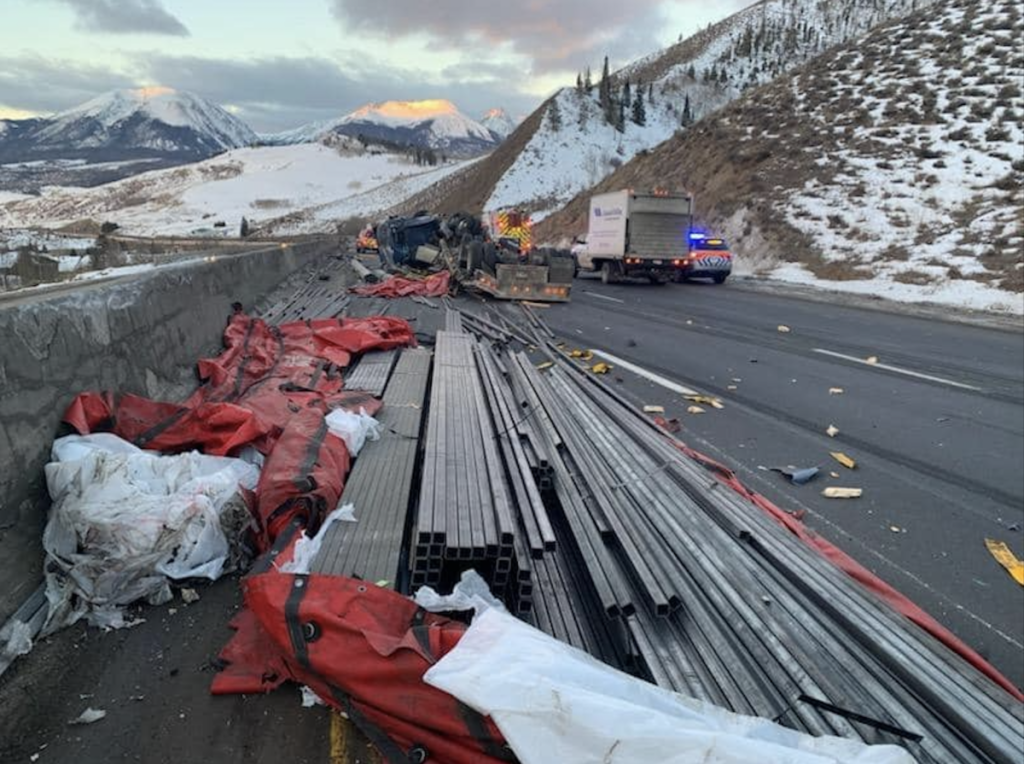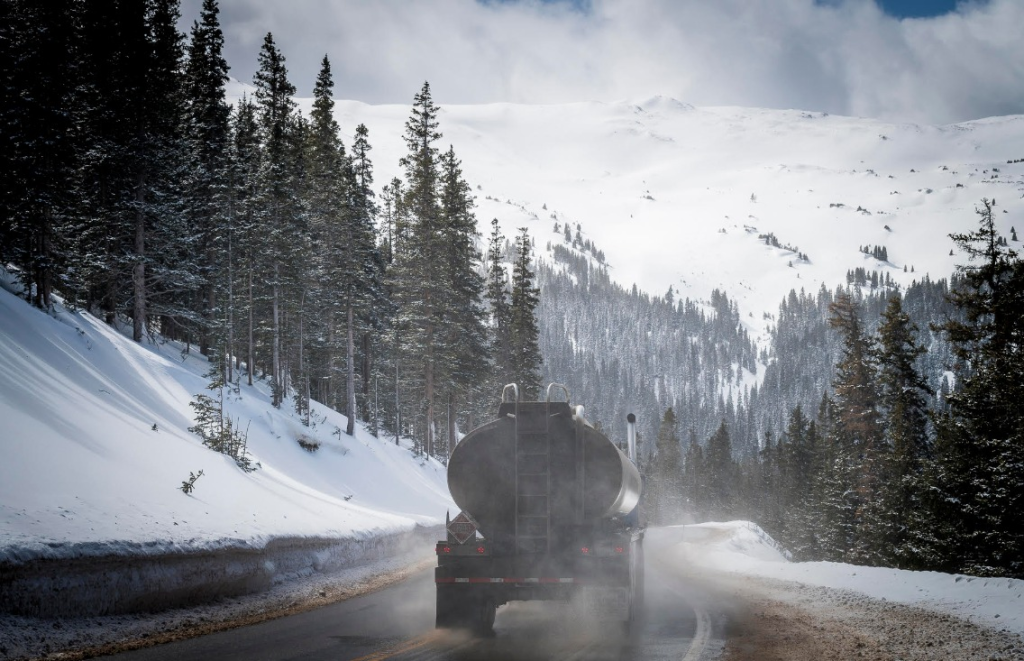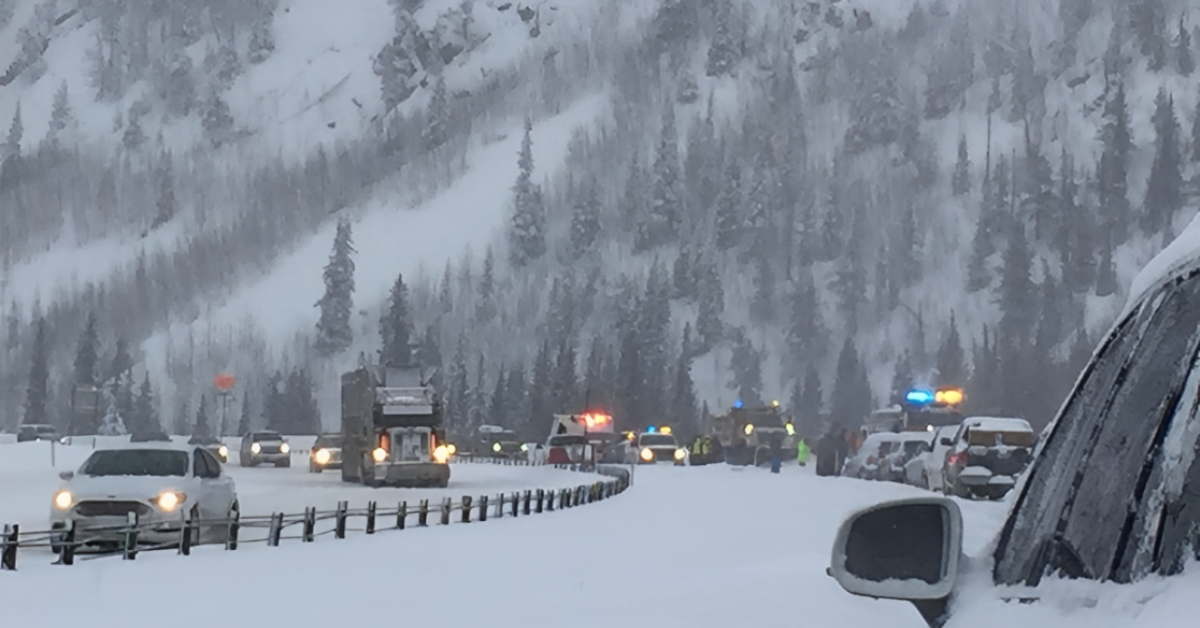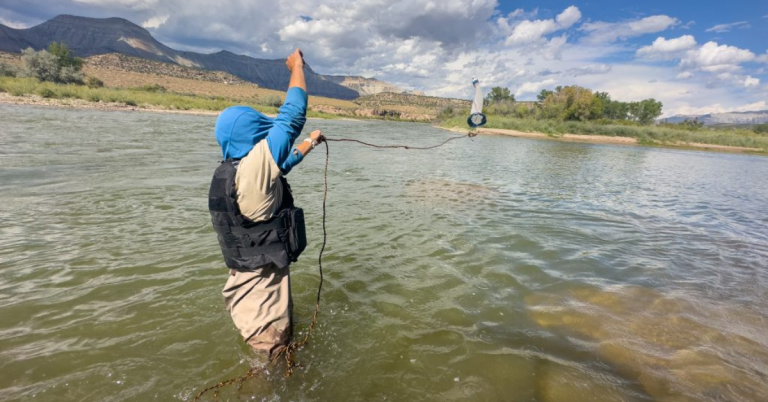The mayor of Vail, Colorado, Travis Coggin, is pushing for a significant increase in fines for truckers who fail to follow the state’s winter chain law. This call for action comes after a frustrating incident that occurred on December 30, 2024.
Several trucks ignored the chain-up station while driving on eastbound I-70 through Vail Pass during challenging winter conditions. This led to several trucks getting stuck, causing a road closure that lasted over three hours. Local news outlet Vail Daily reported that this incident disrupted traffic and raised concerns among residents and officials about the effectiveness of current fines.
Coggin, during a Vail Town Council meeting on January 7, 2025, spoke passionately about the need for harsher penalties to ensure that truckers follow the law. He emphasized that the current fine of $500 is not sufficient to discourage truckers from bypassing the chain-up stations, especially when conditions are hazardous.
In fact, Coggin noted that during the very first snowstorm of the season, twelve truckers ignored the chain-up station, which he described as an offensive act to the community. He proposed a much larger fine—$20,000—for those who fail to comply with the chain law, stating that the current situation is unacceptable and that stronger actions are necessary to protect the community and the roadways.
Mayor Coggin also pointed out that it is high time for stronger political will to address the issue. He suggested that counties along the I-70 corridor, including Eagle, Summit, Clear Creek, Jefferson, Lake, and Pitkin, as well as other municipalities in between, should collaborate to support the increase in fines.
He made it clear that these changes are long overdue and emphasized the need for stricter enforcement of the law to prevent more incidents like the one in December 2024. Coggin’s appeal for action was not just a call for tougher penalties but also for a broader discussion among local governments to work together on this important issue.

Currently, Colorado law imposes a fine of up to $500 for non-compliance with winter driving restrictions for commercial vehicles. In addition to the $500 fine, there is also a $79 surcharge for drivers who fail to chain up their vehicles. If a truck becomes stuck and blocks a lane or any portion of the roadway, the fine increases to $1000, with a $157 surcharge.
However, this penalty has been criticized as too lenient, especially when considering the risks and disruptions caused by trucks failing to comply with the chain-up laws.
In 2024, Colorado lawmakers took steps to expand the chain law requirements. These changes included adding commercial vehicle lane restrictions to I-70 and expanding the number of roadways where truckers are required to carry chains during the fall, winter, and early spring months.
The law also now prohibits trucks from traveling in the far left lane of I-70, although there are some exceptions to this rule. These expanded regulations were enacted to improve road safety during the winter months. Still, Coggin believes that more needs to be done to ensure compliance, particularly when it comes to enforcing penalties.
For truckers who might not be familiar with the chain law, it requires commercial vehicles to be equipped with chains during certain weather conditions in the fall, winter, and early spring months, specifically on roads where winter driving conditions are expected.
The law was put in place to ensure that trucks can navigate Colorado’s mountain passes safely, especially during snowstorms and icy conditions. However, as incidents like the one on December 30 show, some truckers still choose to ignore the law, putting other drivers at risk.
Coggin’s call for a $20,000 fine is aimed at making a more serious impact. He believes that a larger financial penalty would serve as a deterrent, encouraging truckers to take the law seriously and chain up their vehicles when necessary.
While the $500 fine may not be enough to change behavior, a higher fine would likely make truckers think twice before disregarding the chain-up requirements. Moreover, Coggin suggested that additional penalties, such as points on drivers’ records, could further strengthen the law and provide a more effective deterrent.
The mayor’s proposal has sparked a conversation about the role of state and local governments in regulating winter driving laws and ensuring that they are followed. It also highlights the ongoing challenges of maintaining safe road conditions in Colorado, a state known for its difficult mountain passes and unpredictable winter weather.

The state’s chain law is designed to prevent accidents and delays caused by trucks that are unable to navigate snowy or icy roads. However, as the December incident demonstrated, the law is only effective if it is enforced properly, and that requires stronger penalties for those who violate it.
With the backing of local officials and municipalities, Coggin hopes to see this change in the law sooner rather than later. He believes that the political will exists to make this happen, but it will take collective action from local governments, lawmakers, and the public to push for the necessary changes.
By increasing fines and ensuring that truckers are held accountable for their actions, Colorado could reduce the number of road closures and improve safety for all drivers on I-70 and other mountain roads.
The proposed $20,000 fine for truckers who fail to chain up is just one part of the ongoing conversation about winter road safety in Colorado. It is clear that the state is committed to ensuring the safety of all drivers, but it will take continued efforts to ensure that the chain law is enforced effectively.
As Colorado moves forward with these proposed changes, it will be important to monitor the impact of higher fines and penalties to determine whether they are successful in reducing violations and improving road safety.
Disclaimer: This article has been meticulously fact-checked by our team to ensure accuracy and uphold transparency. We strive to deliver trustworthy and dependable content to our readers.







Leave a Comment